Quotes About Prophet Muhammad
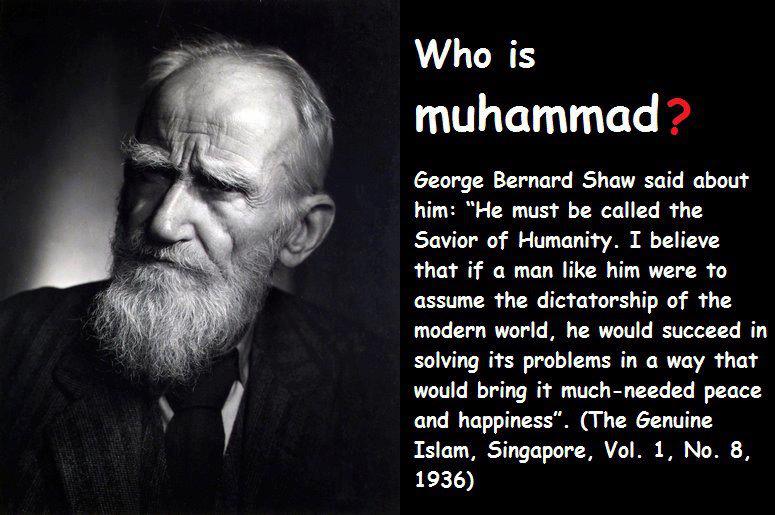
Karen Armstrong
In defense of Prophet Muhammad
In her book, Muhammad, a Biography of the Prophet, Karen Armstrong wrote:
“But the very idea that Muhammad would have found any thing to be optimistic about in the carnage committed in his name on September 11th is an obscenity, because, as I try to show in these pages, Muhammad spent most of his life trying to stop that kind of indiscriminate slaughter. The very word islam, which denotes the existential “surrender” of the whole being to God, which Muslims are required to make, is related to salam, “peace.” And most importantly, Muhammad eventually abjured violence and pursued a daring, inspired policy on non-violence that was the culmination of his prophetic career. In imagining that the holy war was the culmination of his career, the fundamentalists (extremists) have distorted the whole meaning of his life.
Far from being the father of Jihad, Muhammad was a peacemaker, who risked his life and nearly lost his closest companions, because he was so determined to effect a reconciliation with Mecca. Instead of fighting an intransigent war to the death, Muhammad was prepared to negotiate and to compromise. And this apparent humiliation and capitulation proved, in the words of the Qur’an, to be a great victory (fat-‘h)….If we could view Muhammad as we do any other important historical figure we would surely consider him to be one of the greatest geniuses the world has known.
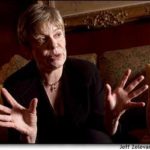
W. Montgomery Watt
W. Montgomery Watt’s views about Prophet Muhammad
His readiness to undergo persecution for his beliefs, the high moral character of the men who believed in him and looked up to him as a leader, and the greatness of his ultimate achievement – all argue his fundamental integrity. To suppose Muhammad an impostor raises more problems than it solves. Moreover, none of the great figures of history is so poorly appreciated in the West as Muhammad… Thus, not merely must we credit Muhammad with essential honesty and integrity of purpose, if we are to understand him at all; if we are to correct the errors we have inherited from the past, we must not forget the conclusive proof is a much stricter requirement than a show of plausibility, and in a matter such as this only to be attained with difficulty.
James A. Michener
“Like almost every major prophet before him, Muhammad fought shy of serving as the transmitter of God’s word, sensing his own inadequacy. But the angel commanded, “Read.” So far as we know, Muhammad was unable to read or write, but he began to dictate these inspired words, which would soon revolutionize a large segment of the earth: “There is one God.”
In all things, Muhammad was profoundly practical. When his beloved son Ibrahim died, an eclipse occurred, and a rumor of God’s personal condolence quickly arose. Whereupon Muhammad is said to have announced, “An eclipse is a phenomenal of nature. It is foolish to attribute such a thing to the death or birth of a human being.
At Muhammad’s own death, an attempt was made to deify him, but the man who was to become his administrative successor killed the hysteria with one of the noblest speeches in religious history: “If there are any among you who worshiped Muhammad, he is dead. But if it is God you worship, He lives forever.”
No other religion in history spread so rapidly as Islam. The West has widely believed that this surge of religion was made possible by the sword. But no modern scholar accepts this idea, and the Qur’an is explicit in the support of the freedom of conscience.”
– Islam The Misunderstood Religion James A. Michener. Reader’s Digest, May 1955, pp. 68-70
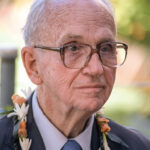
Mahatma Gandhi
I wanted to know the best of the life of one (Muhammad) who holds today an undisputed sway over the hearts of millions of mankind. I became more than ever convinced that it was not the sword that won a place for Islam in those days in the scheme of life. It was the rigid simplicity, the utter self-effacement of the Prophet, the scrupulous regard for pledges, his intense devotion to his friends and followers, his intrepidity, his fearlessness, his absolute trust in God and in his own mission. These and not the sword carried everything before them and surmounted every obstacle.
―
Professor Hurgronje
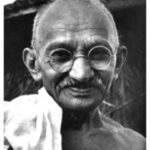
Professor Hurgronje
The league of nations founded by the Prophet of Islam put the principle of international unity and human brotherhood on such universal foundations as to show candle to other nations.
The fact is that no nation of the world can show a parallel to what Islam has done towards the realization of the idea of the League of Nations.
Professor Hurgronje
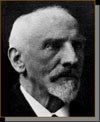
Michael H. Heart
My choice of Muhammad to lead the list of the world’s most influential persons may surprise some readers and may be questioned by others, but he was the only man in history who was supremely successful on both the religious and secular levels.
The 100, A RANKING OF THE MOST INFLUENTIAL PERSONS IN HISTORY, Michael H. Heart, Kensington Publication, New York, N Y. 1992.
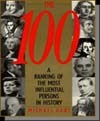
Reginald Bosworth Smith
He was Caesar and Pope in one; but he was Pope without Pope’s pretensions, Caesar without the legions of Caesar: without a standing army, without a bodyguard, without a palace, without a fixed revenue; if ever any man had the right to say that he ruled by the right divine, it was Mohammed, for he had all the power without its instruments and without its supports.
Reverend Reginald Bosworth Smith
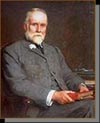
Alphonse De Lamar Tine
Speaking on the essentials of human greatness wonders, the historian Lamar Tine states:
If greatness of purpose, smallness of means and astounding results are the three criteria of human genius, who could dare to compare any great man in modern history than Muhammad.
The most famous men created arms, laws and empires only. They founded, if anything at all, no more than material powers which often crumbled away before their eyes.
This man moved not only armies, legislation, empires, peoples and dynasties, but millions of men in one-third of the then inhabited world; and more than that, he moved the altars, the gods, the religions, the ideas, the beliefs and souls….
His forbearance in victory, his ambition, which was entirely devoted to one idea and in no manner striving for an empire;
His endless prayers, his mystic conversations with God, his death and his triumph after death; all these attest not to an imposture but to a firm conviction which gave him the power to restore a dogma.
Philosopher, orator, apostle, legislator, warrior, conqueror of ideas, restorer of rational dogmas, of a cult without images, the founder of twenty terrestrial empires and of one spiritual empire, that is Muhammad.
As regards all the standards by which human greatness may be measured, we may well ask, ‘Is there any man greater than he?
Alphonse De Lamar Tine, Histoire De LaTurquie, Praise, 1854 Vol. II, PP 276-277
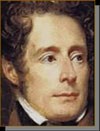
Annie Besant
It is impossible for anyone who studies the life & character of the great Prophet of Arabia, …., to feel anything but reverence for that mighty Prophet, one of the great messengers of the Supreme. And although in what I put to you I shall say many things which may be familiar to many, yet I myself feel whenever I re-read them, a new way of admiration, a new sense of reverence for that mighty Arabian teacher.
The Life & Teaching of Muhammad
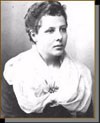
Michael The Elder
Michael the Elder (Great) as Quoted in ‘Michael the Elder, Chronique de Michael Syrien, Patriarche Jacobite d’ Antioche,’ J.B. Chabot, Editor, Vol. II, Paris, 1901.
“This is why the God of vengeance, who alone is all-powerful, and changes the empire of mortals as He will, giving it to whomsoever He will, and uplifting the humble beholding the wickedness of the Romans who throughout their dominions, cruelly plundered our churches and our monasteries and condemned us without pity, brought from the region of the south the sons of Ishmael, to deliver us through them from the hands of the Romans. And if in truth we have suffered some loss, because the Catholic churches, that had been taken away from us and given to the Chalcedonians, remained in their possession; for when the cities submitted to the Arabs, they assigned to each denomination the churches which they found it to be in possession of (and at that time the great churches of Emessa and that of Harran had been taken away from us); nevertheless it was no slight advantage for us to be delivered from the cruelty of the Romans, their wickedness, their wrath and cruel zeal against us, and to find ourselves at people. (Michael the Elder, Jacobite Patriarch of Antioch wrote this text in the latter part of the twelfth century, after five centuries of Muslim rule in that region.
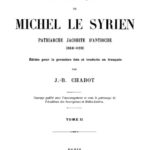
George Bernard Shaw
I have always held the religion of Muhammad in high estimation because of its wonderful vitality. It is the
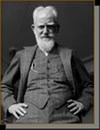
John Bagot Glubb
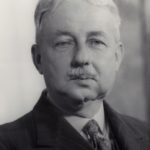
Thomas Garlyle

William Draper

Recommended Posts
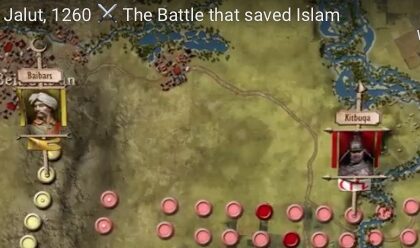
Islam Saved Europe Twice
November 17, 2023
الميزان المفقود
February 8, 2023
صُلح الحديبية – سُنَّة جَلية وفَتحٌ الهي
January 26, 2023

